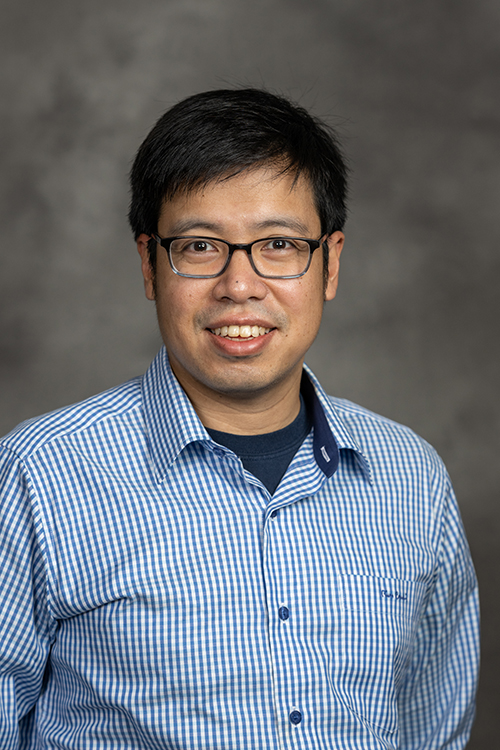Paul Chandanabhumma, Ph.D., MPH, assistant professor in the Department of Family Medicine (DFM), has been named a recipient of the University of Michigan’s 2023 Anti-Racism Research & Community Impact Faculty fellowship.
The fellowship is a new initiative of the National Center for Institutional Diversity’s Anti-Racism Collaborative to support and elevate early career faculty to advance their anti-racism scholarship in the academy while dismantling systemic racism through policy advocacy, practice, teaching and community partnerships.
Chandanabhumma is a co-director and co-founder of the Department of Family Medicine’s Anti-Racism and Health Equity Program (AREP), which aims to address health inequities caused by structural racism and intersecting forms of oppression by conducting community-engaged research and scholarship. Chandanabhumma’s work strives to uplift anti-racism, community engagement and mixed methods approaches to pave the way for transformative changes towards health equity.
This awarded fellowship will build upon an existing partnership that AREP has created with Avalon Housing, a nonprofit service organization that provides affordable housing across 29 sites in Washtenaw County. The fellowship work will center the experiences and needs of Avalon Housing. This collaboration will strive to create strategies and a toolkit that will elevate Avalon Housing’s transformative impacts on the communities it serves.
To grow the community-academic partnership, the collaborative project will:
- Enhance AREP and Avalon’s collective understanding of anti-racist homelessness and housing insecurity interventions and enhance their existing theory of change by conducting community concept mapping and literature reviews.
- Promote Avalon’s anti-racist, mixed methods evaluation of the permanent supportive housing process and outcomes by improving community data collection, analysis and interpretation approaches.
- Drive success in Avalon’s anti-racist grant development efforts by providing technical assistance and the creation of a grant proposal toolkit.
“We’re grateful for the support of this fellowship that will allow us to continue this community-academic partnership and make meaningful contributions to help Avalon and AREP realize our shared vision of healthier families and communities, inclusive housing and health, ” said Chandanabhumma.
ALSO READ: New partnership to address trauma, homelessness and housing insecurity
About Avalon Housing
Founded in 1992, Avalon Housing’s mission is to build healthy, safe and inclusive supportive housing communities as a long-term solution to homelessness. Since it was established, Avalon has helped over 1,000 individuals achieve stability and improve their lives.
About the Anti-Racism and Health Equity Program
The Antiracism and Health Equity Program (AREP) was created to expose and address health inequities caused by structural racism and intersecting forms of oppression through research and scholarship as a primary care academic department. It is part of the Department of Family Medicine’s larger Diversity, Equity and Inclusion efforts.
About the National Center for Institutional Diversity and the Anti-Racism Collaborative
The National Center for Institutional Diversity (NCID) is home to the Anti-Racism Collaborative (ARC), a strategic space created to facilitate U-M community engagement around research and scholarship focused on racial inequality, racial justice and anti-racist praxis. The ARC supports a variety of activities to catalyze innovation in research and scholarship, as well as informed practice, public engagement, and action to advance anti-racist principles and organizing. The collaborative was created to recognize, honor, spotlight and elevate the work of our current research community related to racism and racial justice.



